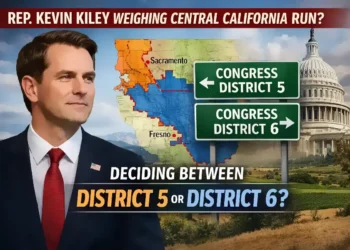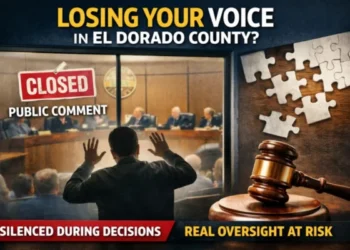El Dorado County (April 19, 2024) – Supreme Court Ruling Strikes Blow Against Unjust Bureaucratic Burden
In a landmark decision, the United States Supreme Court unanimously ruled in favor of George Sheetz in the case against El Dorado County, marking a pivotal victory for property owners and mom-and-pop homebuilders alike. The ruling not only signifies a triumph for individual rights but also delivers a resounding message that government entities cannot wield unchecked power over taxpayers.
At the heart of the matter was the unjust imposition of fees by El Dorado County bureaucrats, exemplified by George Sheetz’s pursuit to reclaim $23,420 wrongfully extracted from him. While this sum may appear inconsequential at first glance, the Court’s ruling, as articulated by Justice Amy Comey Barrett, reinforces the sanctity of property rights and condemns any attempts by legislators or administrators to circumvent them.
Barrett’s assertion in the Court’s decision is unequivocal: “There is no basis for affording property rights less protection in the hands of legislators than administrators. The Takings Clause applies equally to both…”
The ramifications of this ruling reverberate beyond the confines of El Dorado County, shedding light on systemic issues plaguing bureaucratic bodies nationwide. The unchecked power wielded by county officials, coupled with a lack of accountability from elected representatives, has created a breeding ground for injustice, particularly impacting ordinary citizens seeking to fulfill their dream of homeownership.
The crux of the problem lies in the county’s erroneous application of laws and its propensity to flout legal boundaries, a situation exacerbated by a complacent Board of Supervisors unwilling to rein in rogue agencies. As a result, the average taxpayer finds themselves ensnared in a web of government extortion, with exorbitant fees rendering homeownership an unattainable dream for many.
Moreover, this egregious mismanagement disproportionately empowers large developers, who, unlike ordinary citizens, possess the financial means to navigate bureaucratic hurdles and pass on inflated costs to prospective homebuyers. Consequently, young families are forced out of the local housing market, widening the chasm of inequality and perpetuating social injustice.
Despite the Supreme Court’s unequivocal ruling, signs indicate that El Dorado County remains obstinate in its stance. Deputy Chief Administrative Officer & Communications Officer Carla Hass’s remarks, while emblematic of the county’s defiance, border on delusion, reminiscent of passengers on the Titanic clinging to the illusion of unsinkability even as disaster looms.
It is imperative for hardworking taxpayers to remain vigilant, recognizing that the issue at hand transcends El Dorado County and extends to other local government entities, including schools. The revelation that school impact fees are similarly misappropriated underscores the urgency of the situation, particularly in light of declining enrollment exacerbated by the COVID-19 pandemic and ideological shifts within the education system.
As the dust settles on the Sheetz case, the onus falls upon citizens to demand accountability and transparency from their elected officials. The path forward necessitates a comprehensive reassessment of impact fees, ensuring that they are not only lawful but also serve the best interests of the community and future generations.










